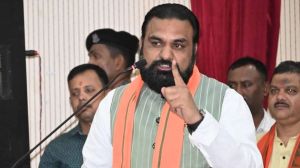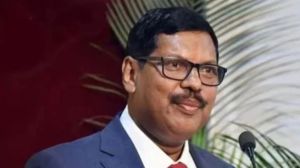2 lakh Indians returned from UAE due to downturn: Study
The first-ever study on the impact of the global economic crisis on Indians working abroad has confirmed fears that lakhs of people....
The first-ever study on the impact of the global economic crisis on Indians working abroad has confirmed fears that lakhs of people have returned to the country after losing their jobs and suggested that the government introduce an emergency employment scheme for their rehabilitation and provide financial assistance to help repay their loans.
The study,conducted by global consulting firm Deloitte for the Overseas Indian Affairs Ministry,focused on the impact of the crisis in Gulf countries and Malaysia. It has found out that around two lakh Indians have returned from the UAE alone due to the crisis,followed by close to 15,000 from Bahrain and nearly 7,000 from Kuwait.
Compounding the problem is the fact that between September 2008 and March 2009,there has been a 30 per cent reduction in the number of Indian unskilled workers migrating to these countries otherwise favourite destinations due to reduced economic activities there,coupled with restrictive policies of the governments of these nations and the migrants tendency to avoid risks.
Though the study gives only rough estimates about the number of migrants who have returned from GCC (Gulf Cooperation Council) countries and Malaysia,it highlights the severity of the problem and provides the blueprint for introduction of specific programmes for returnee migrants.
In the short term,it wants the government to introduce emergency employment generation schemes for returnee migrants,set up temporary camps in foreign countries to provide asylum to those who have lost their jobs besides providing them free return tickets and financial assistance in the form of subsidised loans to help them repay loans taken for migration purposes.
The other measures recommended include starting of a Gulf returnee entrepreneurship promotion programme,setting up helpdesks to provide guidance on available job opportunities in the country and abroad,introduction of safety nets for returnees like doling out unemployment allowances and organising job fairs for them.
The study has also suggested that a special cell be created in Indian embassies that could interact with key employers of Indian migrants and open overseas workers counselling counters in all major airports in the country.
In the long-term,the study suggested that the government set up an independent employment exchange unit to act as a coordination body between overseas employers and job-seeking workers,put in place stringent regulations for recruitment agents,introduce pre-departure orientation courses for migrants,launch a web portal to disseminate migration-related information and develop online migrant-tracking mechanism.



- 011 day ago
- 0220 hours ago
- 031 day ago
- 041 day ago
- 051 day ago




























